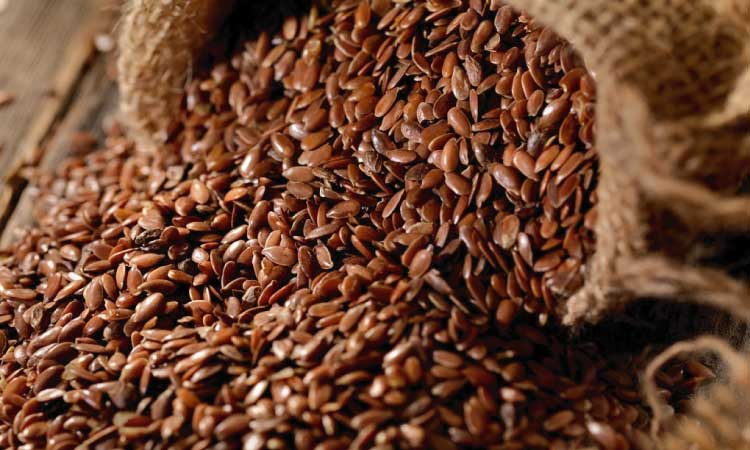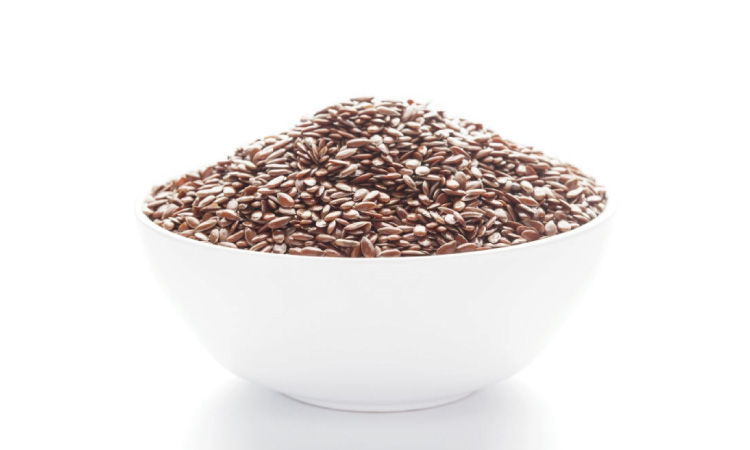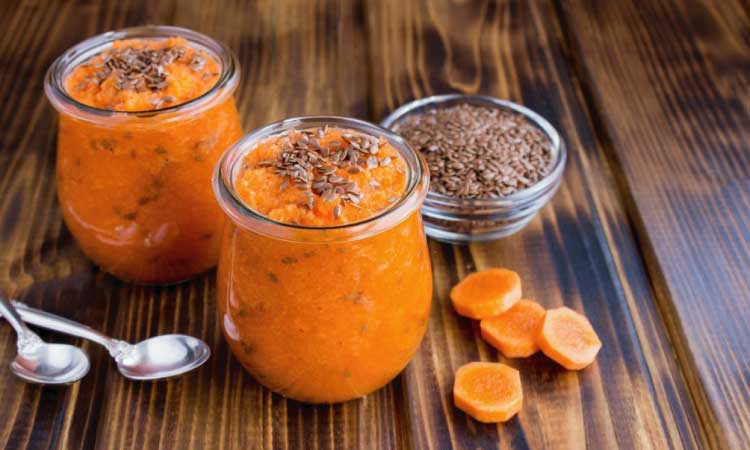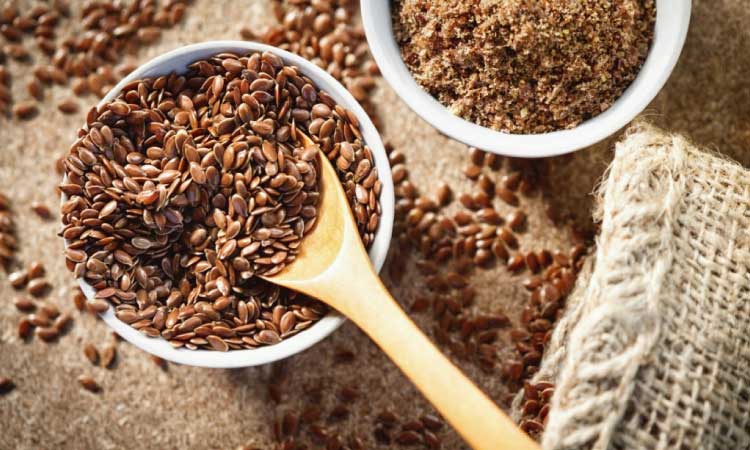How concerned are you to consume only safe foods during pregnancy? Well, everyone is. While there are many superstitions on what is good and bad during pregnancy, let us about consuming flax seeds during pregnancy. Flax seeds have a lot of popularity in recent years as a health food, and no wonder
Pregnancy is a phase where you get all sorts of advice for proper delivery and the well-being of you and your child. The most important advice that every expecting mom receives is regarding what food needs to be consumed.
Flax seeds during pregnancy are recommended by many to keep the expecting mom strong and to keep the fetus healthy. Be it practical theories or traditional methods, pregnant women should consume food that is good for the welfare of the baby.
Let us see in detail the risks, benefits, and precautions related to eating flax seeds during pregnancy.
What Are Flax Seeds?
Also known as Linseed, flax seeds are a nutritious food that comes with many health benefits. Flax seeds are not quite popular in India. They are reproduced by the flax plant that grows in Europe, Asia, and the Mediterranean.
Flax seeds provide many health benefits when taken in moderation during pregnancy. Also, flax seeds are a rich source of magnesium, potassium, protein, zinc, Vitamins B6 and E. The omega fatty acid present in them helps lower cholesterol levels and reduce inflammation that many women experience during pregnancy.
Related Reading: Pumpkin Seeds During Pregnancy- All You Need To Know
They are high in fiber and are beneficial for treating problems like constipation and regulating blood glucose.
Calculate Due Date With LMP
Are Flax Seeds Safe During Pregnancy?
A moderate quantity of flax seeds during pregnancy is considered safe. There are concerns that a large quantity could affect the hormone levels during pregnancy.
You would have noticed flax seeds in the recent pregnancy diet chart of many moms-to-be. The optimum amount to be eaten is one teaspoon of roasted flax seeds per day.
Also, many pregnant women replace flax seeds with flaxseed oil which is not recommended as it could cause preterm delivery. Also, it is better to avoid flaxseed oil during breastfeeding.
Nutritional Profile Of Flax Seeds
Flax seeds may be small, but they have numerous health benefits. They are rich in omega-3 fatty acid Alpha-linolenic acid), fiber, and lignans. Omega 3 fatty acids help in lowering cholesterol levels in pregnant women, reducing inflammation and the risk of cancer.
The lignans components provide antioxidant protection to pregnant women. The fiber content helps you stay full for a long period and also aids in relieving problems like constipation. Make sure the flax seeds are grounded or crushed to get their maximum benefits.
The whole seeds cannot be broken by the body to reap the benefits of omega fatty acids. Hence, it is recommended to ground them before use. Store them in an air-tight, non-transparent container as it is more prone to oxidation and spoilage.
According to a source every teaspoon (10.3 g) of flax seeds contains the below nutritional value:
Total Fat 4.3g – 6% DV
Saturated Fat 0.4g – 2% DV
Sodium 3.1mg – 0% DV
Total Carbohydrate 3g -1% DV
Dietary Fiber 2.8g – 10% DV
Sugar 0.2g
Protein 1.9g – 4 % DV
Calcium 26.27mg – 2 % DV
Iron 0.59mg – 3 % DV
Potassium 84mg – 2 %DV
Related Reading: Top 10 Protein-Rich Foods For Pregnancy
Benefits Of Consuming Flax Seeds For Pregnant Women

Unlike many pregnant women, the recent trend shows that many moms-to-be have replaced the stereotypical pregnancy cravings with healthier options such as flax seeds during pregnancy. But how effective is this superfood for the growing fetus?
Flaxseeds are high in fiber and protein, and it is a delightful food choice for people who want to improve their nutritional consumption and overall health.
As a powerhouse of nutrients, including flax seeds in your diet, is going to benefit you in more than one way. Be it for mothers who are suffering from gestational diabetes or to help fetal brain development and growth, flax seeds come with numerous benefits.
Listed below are many more benefits of consuming flax seeds during pregnancy.
1. To control gestational diabetes
As mentioned earlier, consuming flax seeds during pregnancy helps to control gestational diabetes as flax seeds are rich in fiber. The role of fiber is to disseminate glucose and slow down carbohydrate metabolism. This ensures there is no sudden spike in sugar levels.
For moms who suffer from gestational diabetes, including flax seeds in the diet could help keep postprandial blood sugar in check.
2. To help in fetal brain development
Linoleic acid, alpha-linolenic acid, or omega-3 polyunsaturated fat are all present surpluses in flax seeds. These are vital for the development of the fetus’s brain.
Certain foods have been proven to impact your baby’s memory and capacity to learn. With flax seeds being one of them, we recommend you to take them in moderation.
Related Reading: 18 Foods To Eat To Increase Fetal Weight During Pregnancy
3. To relieve pregnancy-induced constipation
Since flax seeds are rich in fiber, they help to regulate bowel movements with ease. They help avoid hemorrhoids too. Constipation and hemorrhoids are common troubles for pregnant women. Including flax seeds during pregnancy will help you tackle the same.
4. To keep the heart healthy
Many pregnant women experiencing gestational diabetes are also prone to heart issues. Consuming flax seeds during pregnancy helps to improve blood circulation and maintain healthy arteries.
Flax seeds act as blood thinners and ensure there is no plaque formation inside the arteries which pose a threat to the mom and the fetus.
5. Improves immunity
Everyone knows how crucial the pregnancy phase is for a woman. During this time, the immunity levels of the pregnant woman go down. Consuming flax seeds during pregnancy helps to boost the immunity during pregnancy.
The nutrients in flaxseed protect the mom and unborn child. It also protects the fetus in the uterus against life-threatening diseases.
Risks And Precautions When Consuming Flax Seeds During Pregnancy

Your choice of foods plays an important role during pregnancy. There is a lot of debate if flax seeds during pregnancy are safe for pregnant women or not. It is recommended not to consume raw flax seeds. It is believed to contain some amounts of cyanide.
Recent study that was conducted on rats found that consuming too much flax seeds while pregnant or breastfeeding, increased hormonal levels which also led to developing breast cancer later in life in the rat’s descendants.
Listed below are the risks of consuming flax seeds during pregnancy.
1. May cause allergic reactions
Certain foods can cause allergies. In case you are allergic to seeds, we advise you to check with your doctor before consuming flax seeds during pregnancy as chances are high you may be allergic to them.
Indicators of allergy include itching, swelling, redness, or hives vomiting, and nausea. In case you experience any one of them, we suggest you stop consuming it.
Related Reading: 9 Common Infections During Pregnancy You Should Be Aware Of
2. Hormone imbalance
In a few cases, flax seeds can act as estrogen hampering hormonal balance in the body. It is also seen to change the menstrual cycle. Conditions like PCOS (polycystic ovary syndrome), uterine fibroids, uterine cancer, and ovarian diseases are a few side effects of consuming excess flax seeds.
3. May induce loose stools
Though flax seeds are rich in fiber, a sudden increase in the consumption of flax seeds can increase bowel movements. You may also experience symptoms such as stomach aches, bloating, and diarrhea.
Those who already are suffering from these health conditions should avoid flaxseeds in all circumstances.
Related Reading: Black Stool During Pregnancy- Probable Reasons, Remedies And Prevention
4. Intestinal blockage
Consuming too many flax seeds without adequate liquid could lead to intestinal blockage. In case you have experienced any such things, it is better to avoid consuming them.
Also, patients with conditions such as Scleroderma should avoid consuming flax seeds as it leads to constipation and bowel obstruction.
Precautions While Consuming Flax Seeds During Pregnancy
Flax seeds are safe when consumed in moderation. However, there are a few things to keep in mind before consuming flax seeds during pregnancy.
1. Do not consume raw flax seeds as they contain a certain toxic substance that is not good for you and the fetus.
2. Consuming flax seeds in excess could cause hormonal imbalance.
3. Keep yourself well hydrated while consuming flax seeds during pregnancy.
4. Too much fiber content can cause stomach issues and constipation.
5. Flax seeds can lower cholesterol levels to a great extent, so if you are already on medication for high cholesterol, you should avoid flax seeds.
How To Consume Flax Seeds During Pregnancy

Though flax seeds contain numerous benefits it is advised to consume them in moderation especially while consuming flax seeds in pregnancy third trimester. Also remember to not to consume raw flax seeds and always opt for roasted or grounded form.
You can also ground the roasted flax seeds and store them in an airtight container and consume small quantities to avoid any side effects.
The alpha-linolenic acid (ALA) during pregnancy is about 1.4g/day. Hence, it is advised you can take about a tablespoon of grounded/roasted flax seeds without any worry.
A few ways to include the roasted flaxseed powder in your diet:
- Mix it to your smoothies or yogurt
- Make bread, chapattis, paranthas doughs with flax seeds
- Sprinkle over a fresh salad
- Mix in the batter of dosa, idly, bread

